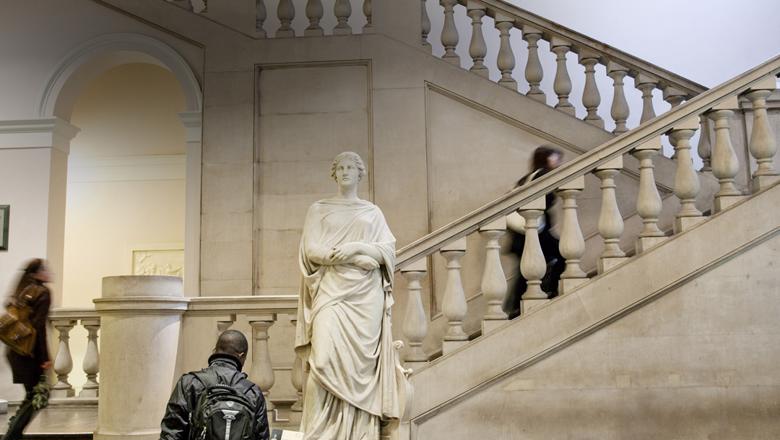Roar writer Helen Kursten-Holmes on the history of Black hair discrimination, and what must be done to dismantle it in both the US and the UK.Â
It cannot be ignored that Black hair is fundamentally intertwined with racial identity. Black people are regularly discriminated against in schools and workplaces for the natural and protective hairstyles they wear. This has far-reaching consequences for Black people who have been repeatedly targeted and discriminated against because of their hair texture, and this form of injustice is found worldwide. Harmful and offensive racial stereotypes have been associated with Black hair since time immemorial. For instance, afro hair is deemed “unprofessional†or “distracting†and is generally perceived as less desirable when contrasted with Eurocentric hair and beauty standards. More must be done to eradicate these deeply ingrained biases.
I am a Black woman who has predominately worn braids and similar protective hairstyles for most of my life. I prefer braids as opposed to weaves not only because I like the way they look, but also because they are easier to maintain and last longer. I could list all of the uniquely Black experiences in my lifetime related to my hair, such as spending most of my day in the hair salon edging away from the PowerPik hairdryer tugging at my afro, and the many, many hours spent getting my single plaits done and the headache that immediately followed. In my view, extensive knowledge of Black hair is nonexistent, despite its beauty and resilience.
Ignorance surrounding this issue has often led to the egregious policing of afro-textured hair. In 2016, a 14-year-old student in Kent had to challenge her school to keep wearing box braids. In 201,7 a Black woman was refused a job at Harrods unless she straightened her hair. Recently, Ruby Williams won a legal battle with her school in Hackney after she was repeatedly sent home for wearing her natural afro hair, as it was deemed to have violated uniform policy. DeAndre Arnold, a student in Texas, was suspended from school for wearing dreadlocks and banned from his graduation, while in June of this year, actress Gabrielle Union filed a complaint of employment discrimination against NBC and other production companies due to the alleged racism she experienced last year on the set of America’s Got Talent. Union was reportedly told that her hairstyles were “too wild†and needed to be “toned down,†the implication being that her hair was “too Black†for the talent show.

Credit: Romina FarÃas/Unsplash
Hair discrimination may sound trivial, but it is sadly a reality for many in the Black community. Hair discrimination should no longer be a commonplace practice in society, and in America, the CROWN Act has sought to put an end to this. Spearheaded by California State Senator Holly J. Mitchell, the CROWN Act stands for “Create a Respectful and Open World for Natural Hairâ€. This legislation prohibits discrimination based on hair texture and protective hairstyles including “braids, locs, twists, and knots†in workplaces and schools.
The Crown Coalition scored its first victory on July 3, 2019, when California became the first state to pass the CROWN Act, legally banning hair discrimination. This inspired similar measures in New York and Washington, and most recently Virginia became the first southern state to end this discriminatory practice.
Dove’s 2019 CROWN research study revealed the magnitude of discrimination experienced by women in the workplace based on their natural hairstyles. The findings showed that African-American women are 80% more likely to change their natural hair to meet social norms at work. A year has passed since the CROWN Act was first enacted, but there are still 43 states yet to pass the law.
Astonishingly, there is no similar law in the UK that bans hair discrimination. Author Emma Dabiri is a key figure who has called for a law to also protect against hair discrimination, as she explains “afro hair technically falls under the definition of a protected characteristic, but without [it] being explicitly named, it is all too easily discriminated againstâ€. Dabiri has started a petition which aims to amend the Equality Act 2010 to ensure that afro-textured hair is explicitly protected.
Policies that ban Black hair in its natural state and protective hairstyles are essentially forcing Black people to assimilate into a Eurocentric beauty standard – and this may result in very damaging self-image issues stemming from hair discrimination. The struggle to have to justify something as intrinsic as one’s hair shouldn’t be a feature of everyday life; it is completely absurd. This is an opportunity for us all to be more culturally aware of microaggressions that are still rampant throughout society. It’s time to unpack and dismantle biases in the UK, and ending hair discrimination is a small but critical step towards eradicating racial injustice and inequality.
Roar News writer. BA Classical Studies with English student and a K-drama enthusiast.














